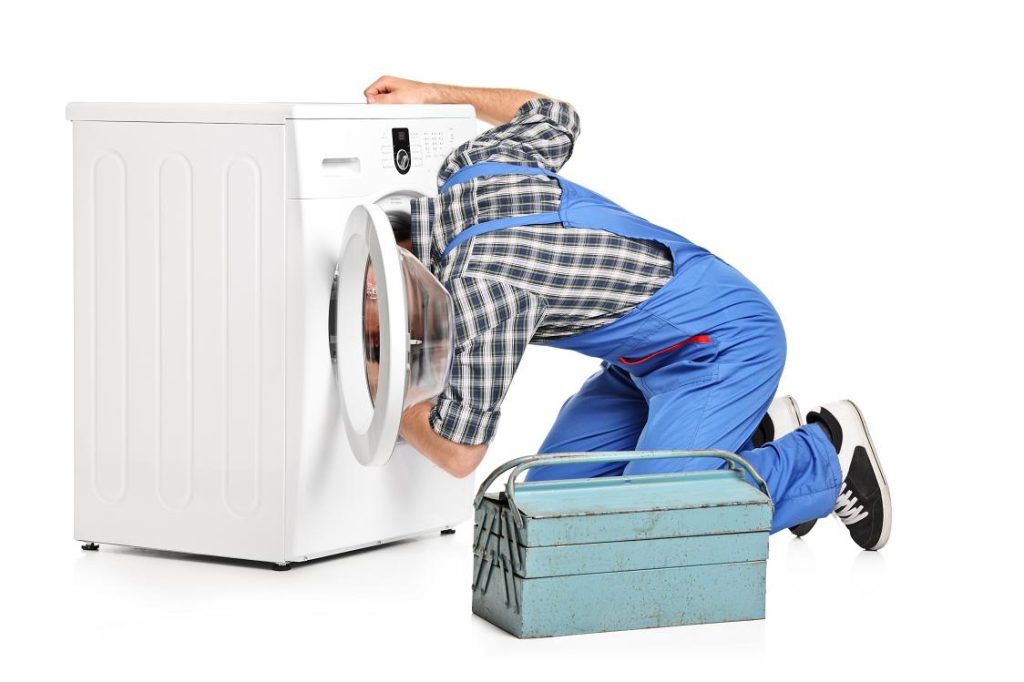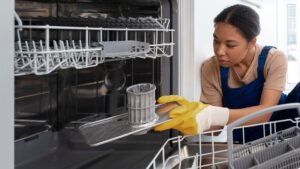If you have ever been bothered by the strange noises coming from your household appliances, you are not alone. Noisy appliances are a common occurrence in many homes, and they often leave us puzzled and wondering if something is wrong.
But fear not! Those sounds aren’t just random clatters; they are actually essential clues about the condition of your appliances. In this blog post, we will help you understand and decipher the meanings behind those mysterious household sounds.

Importance of Addressing Noisy Appliances
Before you decide to tune out those squeaks, rattles, or hums, it’s essential to recognize the importance of addressing noisy appliances. Ignoring these sounds can lead to safety hazards and may even result in severe malfunctions.
By giving prompt attention to these noises, you can prevent potential accidents and extend the lifespan of your appliances. So, don’t overlook those sounds; they might be trying to tell you something crucial.
Decoding Common Noisy Appliances
Let’s take a closer look at some of the most common sounds you might encounter in your appliances. Squeaking noises often indicate a need for lubrication or worn-out parts, while grinding sounds might point to issues with the motor or rotating components.
Humming noises may signify a faulty motor or electrical problems, and rattling sounds could be due to loose parts or debris within the noisy appliances. Understanding these sounds can help you pinpoint the problem and take appropriate action.
Let us dive deeper into the world of common household appliance noises, understanding what they might be trying to tell us:
Squeaking Sounds
If your appliance emits squeaking noises, it’s often an indication of parts that need lubrication or have become worn-out. Components like bearings, belts, or hinges may require some oiling to reduce friction and eliminate the squeaks. Ignoring these sounds could lead to increased wear and tear, affecting the appliance’s overall performance.
Grinding Noises
Hearing grinding noises is generally a sign of trouble within the motor or rotating parts of your appliance. It could be due to damaged gears, worn-out bearings, or misaligned components. In such cases, immediate attention is crucial, as continued use could cause further damage and may eventually render the appliance unusable.
Humming Sounds
A persistent humming noise can be caused by a faulty motor or electrical issues within the noisy appliances. Sometimes, the motor may be struggling to start, which can indicate a potential breakdown in the future. Additionally, humming noises might point to a problem with the fan, compressor, or motor’s internal components.
Rattling Noises
Rattling sounds are often associated with loose parts or debris within the appliance. Loose screws, bolts, or panels can create rattling sounds during operation. Sometimes, foreign objects might get trapped inside the appliance, causing the noise. If left unaddressed, these vibrations and movements could lead to more severe problems.
Clicking Sounds
Occasional clicking sounds during appliance operation are typically normal, especially in refrigerators or air conditioners, where the thermostat is cycling on and off. However, frequent or irregular clicking noises could signify electrical issues or a faulty control board that needs attention.
Whirring Noises
Appliances like blenders, mixers, and fans may produce whirring noises during their normal operation. However, if you notice an unusual increase in the intensity or duration of the whirring sound, it’s essential to investigate further, as it could be an early indication of motor problems.
Buzzing Sounds
A buzzing noise can be caused by various factors, such as a loose fan blade, debris stuck in the appliance’s fan or condenser coils, or even a failing compressor. While not all buzzing sounds indicate a severe issue, it’s worth checking the appliance to ensure everything is in proper working condition.
Appliance-Specific Sounds
Different household Noisy appliances have their unique set of sounds that can provide valuable insights into their health.
For instance, your dishwasher might produce strange noises if there’s an issue with the water inlet valve or spray arm. A refrigerator may make buzzing sounds due to a malfunctioning condenser fan.
HVAC systems might hum louder if there’s a problem with the blower motor or air ducts. And your washing machine might create excessive rattling if the drum or suspension springs are faulty. We’ll cover each of these appliances in detail, so you can become a pro at identifying their individual noises.
When to Seek Professional Help?

It’s natural to want to fix things yourself, but not all appliance problems can be tackled with a DIY approach. Knowing when to seek professional help is crucial.
We will provide you with practical guidelines to assess the severity of the noises and determine whether it’s a job you can handle or one best left to a skilled appliance technician. Your safety and the longevity of your appliances are the top priorities, and making the right decision can save you time, money, and potential headaches.
Preventive Maintenance Tips for Noisy Appliances
Prevention is better than cure, and the same applies to noisy appliances. We’ll equip you with valuable preventive maintenance tips to minimize the occurrence of those bothersome sounds.
From routine cleaning and proper lubrication to checking for loose screws and regular filter replacements, these simple maintenance practices can go a long way in preserving your appliance’s health and reducing noise levels.
Conclusion
By now, you are well-equipped to tackle the mystery of noisy appliances. Understanding and interpreting these sounds will not only ensure your safety but also save you from unnecessary repair costs. Remember to address those noises promptly, decipher their meanings, and take appropriate action.




